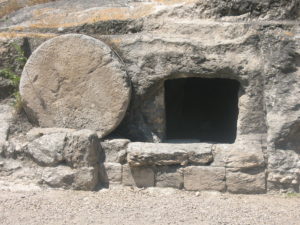I wrote at the beginning of the year, my intention for 2025 is to step in. And, with Lent approaching this week, I find it is a good time to check in to see how I have stepped in, where I haven’t and where I should.
The events around us are moving quickly. On a macro scale, many are not aligned to my personal values or hopes. On a micro scale, in the community of family, friends, and colleagues I journey with daily, they are very much moving in the right direction.
I find in these moments when the macro and micro levels are polar opposites, I feel a sense of paralysis. Are the simple acts of kindness, support, and leadership I am providing enough? Should I do more? And if so, what is “more”? Is there anything holding me back from stepping in?
I reflect on the cliches such as “God is in control” or “all things work together for God’s goodness and glory” or “sometimes you need to tear down in order to build up”. Those are all true and yet, for me, not truly helpful at this juncture.
I have a fundamental belief we are all blessed with gifts to serve God and others. God doesn’t call us to be passive or to be bystanders. Could God tear down and rebuild our world? Of course. We have the story of Noah or Sodom and Gomorrah which tell us God can destroy and rebuild without our help. But, is that what God wants? I offer to you it is not. Not unlike Esther, we are “called for a time such as this.” God wants us to step in.
In my spirit as I write this, I feel God is pushing me forward, saying YES! STEP IN! And my answer back is, how? There are so many opportunities, how do I discern which is the “right one”? The answer to the question is there isn’t a “right one”, there is this one. The next right step in front of me.
That could be allowing someone to merge in on the interstate, engaging in conversation with the check out clerk or holding a door open for a neighbor. How we step in doesn’t have to be grand – it can be simple. The point is to take the step and let the next right step unfold before me. It is a deep trust that yes, God is in control and God wants my participation in bringing forth a “new heaven and a new earth” (Rev 21:1). God could certainly work faster without us, and God wants to co-create the world with us, give us agency in the communities in which we live, work, play, heal and pray.
It is in doing the simple, everyday acts we bring hope. We can counter the hate, vitriol and deception which make for “good television” but are not the community or world I want to live in. We create ripples of change in our inner circles, which God will spread to others. We can move mountains one rock, one pebble at a time because God has called us, “Only to do justice and to love goodness, and to walk humbly with your God” (Micah 6:8) and “do to others whatever you would have them do to you,” (Matt 7:12).
To step in doesn’t need to grand. We only need to take the next right step in front of us with confidence and faith that God will do the rest.

